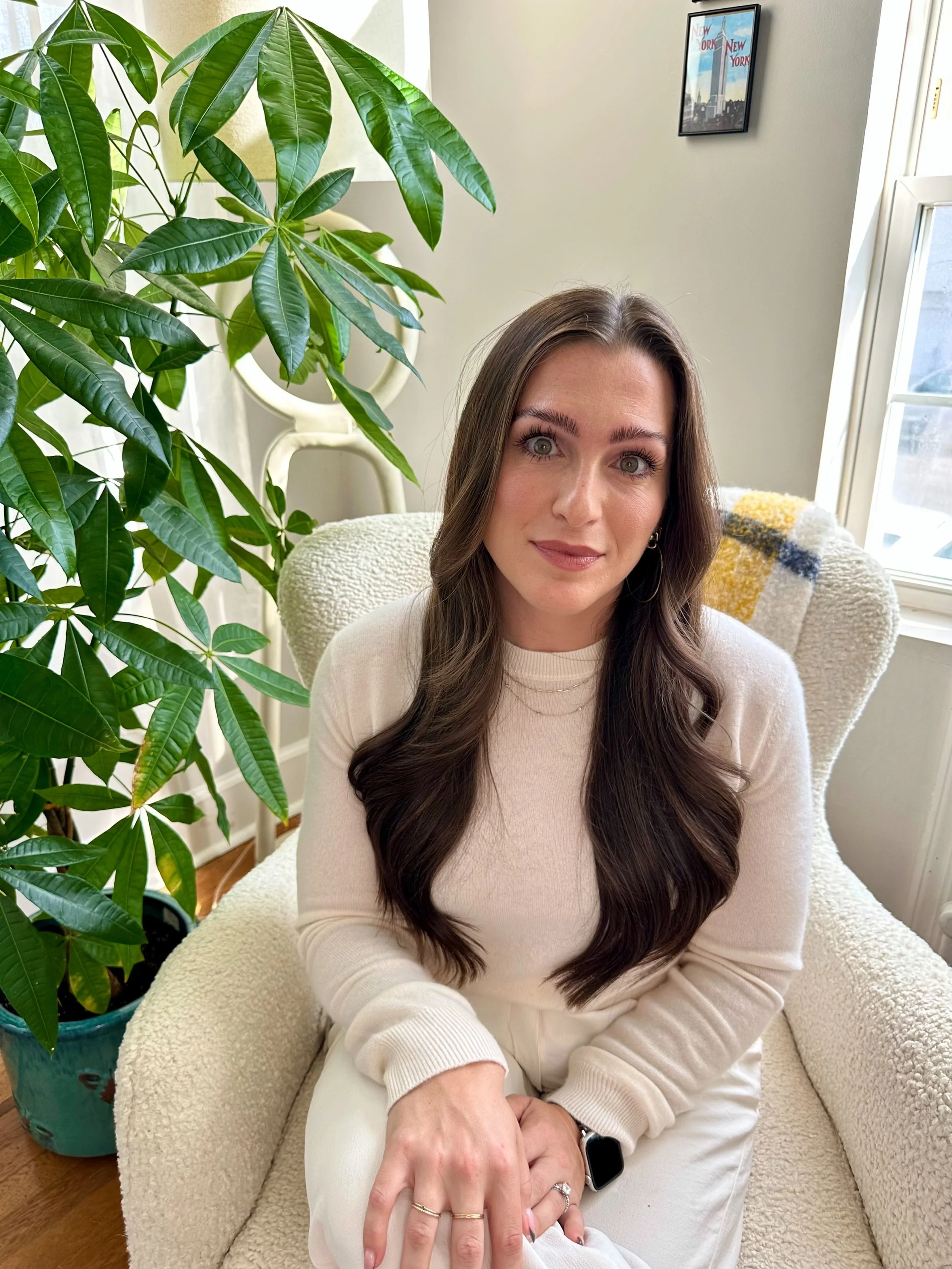Meet Lisa
Welcome! I’m Lisa, and I’m so happy you’re here. I support adult individuals and couples in facilitating deeper growth, connection, and meaning within their relationship with themselves and others. I’m passionate about helping my clients navigate the complexities of their inner worlds and explore their patterns and beliefs.
I believe deeply in the importance of the therapeutic relationship and consider the trust, safety, and care that emerge from it to be essential for growth and change. I find that a sense of healing can occur when we can engage with our bodies and emotions in a safe, supportive environment. I strongly align with the belief that feeling seen, heard, and understood by another human can facilitate greater inner peace and self-acceptance.
I prioritize meeting my clients where they are at with compassion, holding space for all parts of them. By cultivating acceptance and understanding for the parts of ourselves that we find challenging or frightening, I help my clients develop a harmonious relationship with each part and feel more grounded in their sense of self. Warmly and curiously, I work alongside my clients to help them not only tolerate and understand their emotional experiences, but also to learn to recognize the value and insight their emotional parts can offer.
We are not trying to banish pain or difficult emotions away. Instead, we’re trying to slow down, notice, listen, and understand through a new perspective.
Education & Credentials
-
Master of Arts in Mental Health Counseling
CUNY Baruch College
Bachelor of Arts in Clinical Psychology
CUNY Hunter College
-
I've received training in Emotion-Focused Therapy using attachment-based interventions, somatic parts work, Ketamine Assisted Therapy, and sensorimotor psychotherapy for complex trauma and PTSD.
-
Mental Health Counselor Limited Permit #130995
Therapeutic Approach
-
Together, we'll spend time exploring your history and past experiences and connecting them to your current patterns, relational dynamics, and core beliefs. Psychodynamic psychotherapy is a therapeutic approach that helps individuals explore the deeper, often unconscious, patterns influencing their thoughts, emotions, and behaviors. By examining past experiences and relationships, you'll gain insight into unresolved conflicts and emotional struggles, which can lead to greater self-awareness and lasting change.
-
Somatic Internal Family Systems (IFS) combines body awareness with the IFS model, which views the mind as made up of different "parts" or aspects of the self. In Somatic IFS, the body’s sensations, movements, and emotions are explored to connect with these parts on a deeper level. By tuning into the body, you'll be able to access and heal emotional wounds, release tension, and foster greater self-compassion and balance within your internal system. This approach helps bridge the mind-body connection, supporting overall emotional and physical well-being.
-
Attachment-based Emotion-Focused Therapy (EFT) is a therapeutic approach that focuses on strengthening emotional bonds and improving relationship dynamics. Rooted in attachment theory, EFT helps clients understand how their early attachment experiences shape their current emotional responses and relationship patterns. By exploring these attachment needs and emotions in a safe, supportive environment, clients can heal past wounds, build trust, and foster secure, fulfilling relationships. This approach is especially effective for couples and individuals looking to enhance emotional connection and resolve conflicts.
-
Person-centered therapy is a compassionate approach that emphasizes creating a non-judgmental, supportive environment where clients feel fully accepted and understood. Within this approach, you are considered the expert in your own life, while I provide empathy as well as genuine care and support, fostering self-exploration and personal growth. By empowering you to explore your experiences and feelings at your own pace, you can tap into greater self-awareness and self-acceptance.

